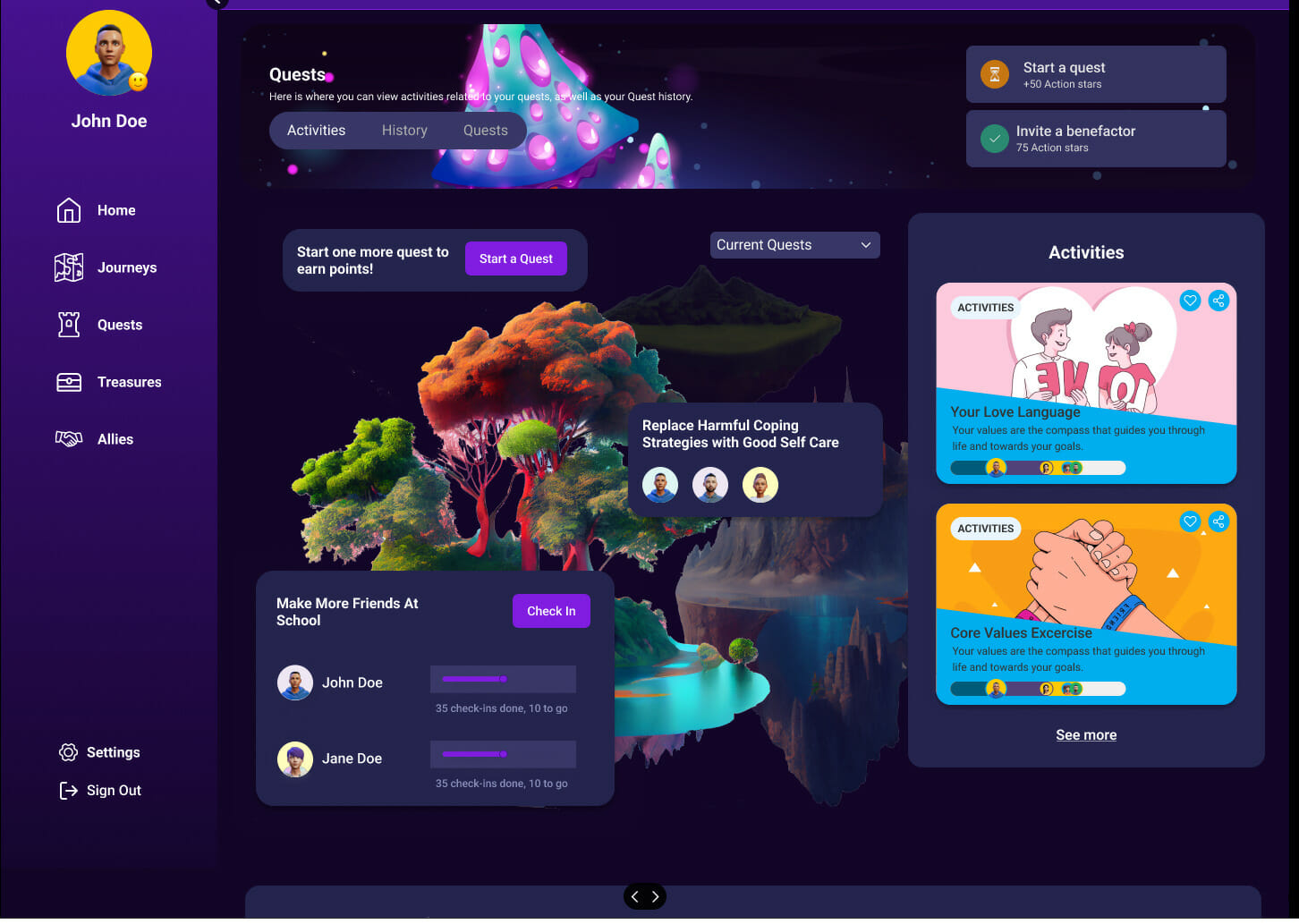Research shows that strong empathy in children equates to less bullying, aggressive behavior, and emotional disorders, and to better relationships, communication skills, classroom engagement, and success in school. Another study finds that teenagers’ ability to experience and express empathy changes and can continue to develop during this important yet often turbulent life stage.
Parents can prepare their children for the pressures of adolescence by strengthening their empathy skills. curaJOY develops children’s and teens’ empathy skills in realistic and fun formats that are scientifically proven and provide ample opportunities for children to rehearse and apply their newfound skills on their virtual quests.
The benefits of empathy extend throughout children’s lives into adulthood. Empathy contributes to strong and satisfying personal relationships, including marriages. It can create more success at work, as careers involve relating to and understanding other people such as bosses, colleagues, customers, and clients. Beyond relating, it helps with conflict resolution, figuring out a customer’s experience, and other useful skills in the workplace. Empathetic people even tend to do better in leadership positions.
Empathy is a trait that involves putting yourself in another person’s shoes and feeling or imagining what it’s like for them to have the experience they’re having. You can understand how a person feels or experience the feeling with them through perspective-taking, tone of voice, and nonverbal communication cues. While this may seem like an inherent human trait, some people have it more than others. By helping your children develop empathy skills, you prime them for responsible actions, healthy relationships, emotional wellbeing, and solid self-image now and in the long run.
The most successful people in business work in a team to design solutions starting by identifying who the end-users are and how those people feel when they have the problem the design should solve. Empathy is not only a crucial strength in a business career, but teaching, medicine, law, and the list go on.
- Weaknesses in empathy can lead to a variety of problems, such as:
- Difficulty considering other sides of a situation
- Trouble adapting and being flexible to the situation’s needs
- Reduced happiness and mental health
- Less success in professional and leadership positions





Leave a Reply